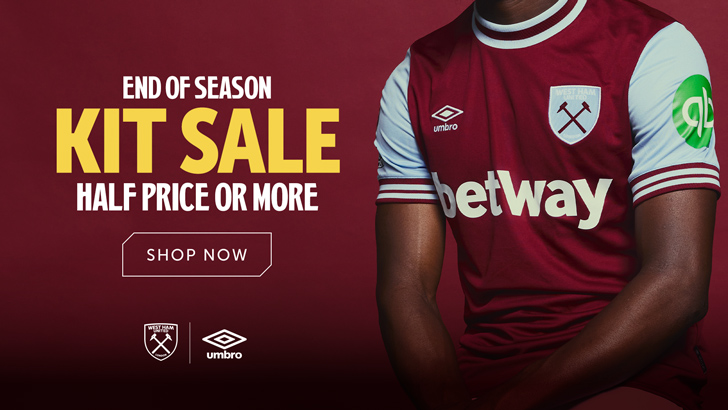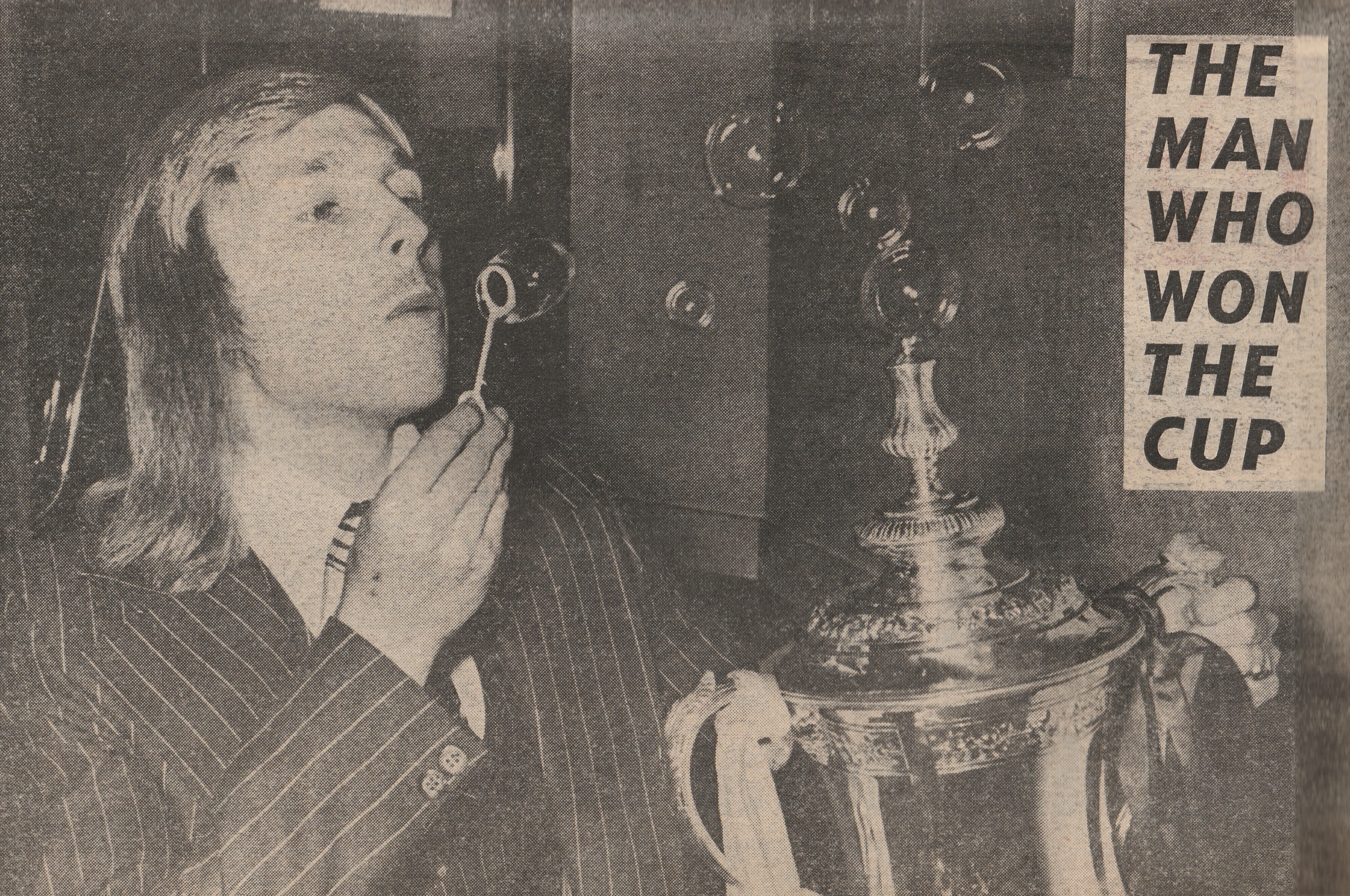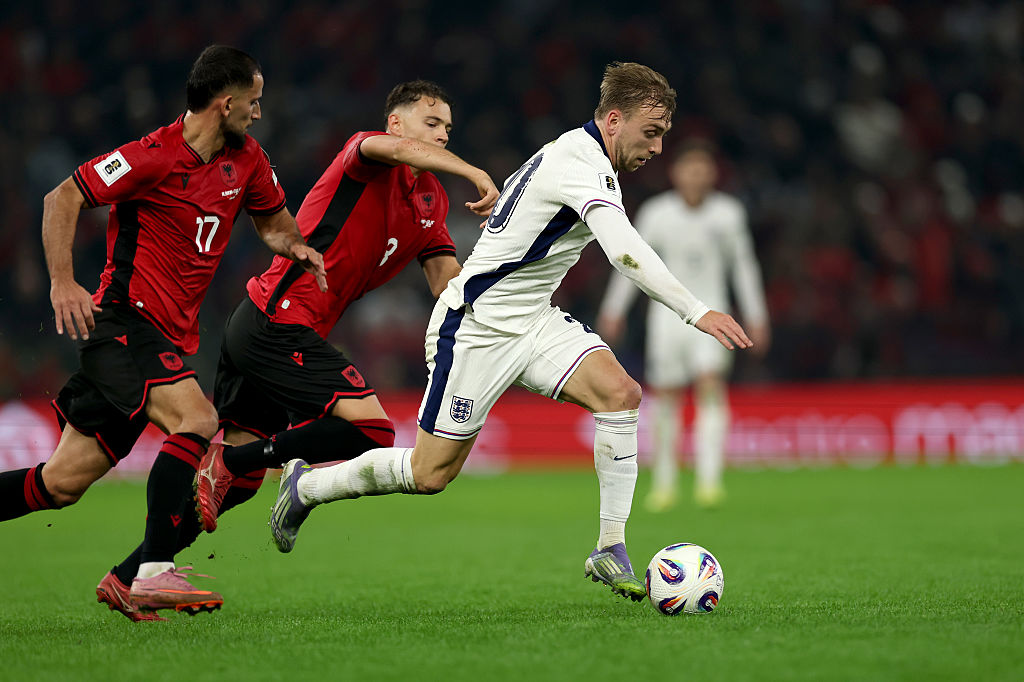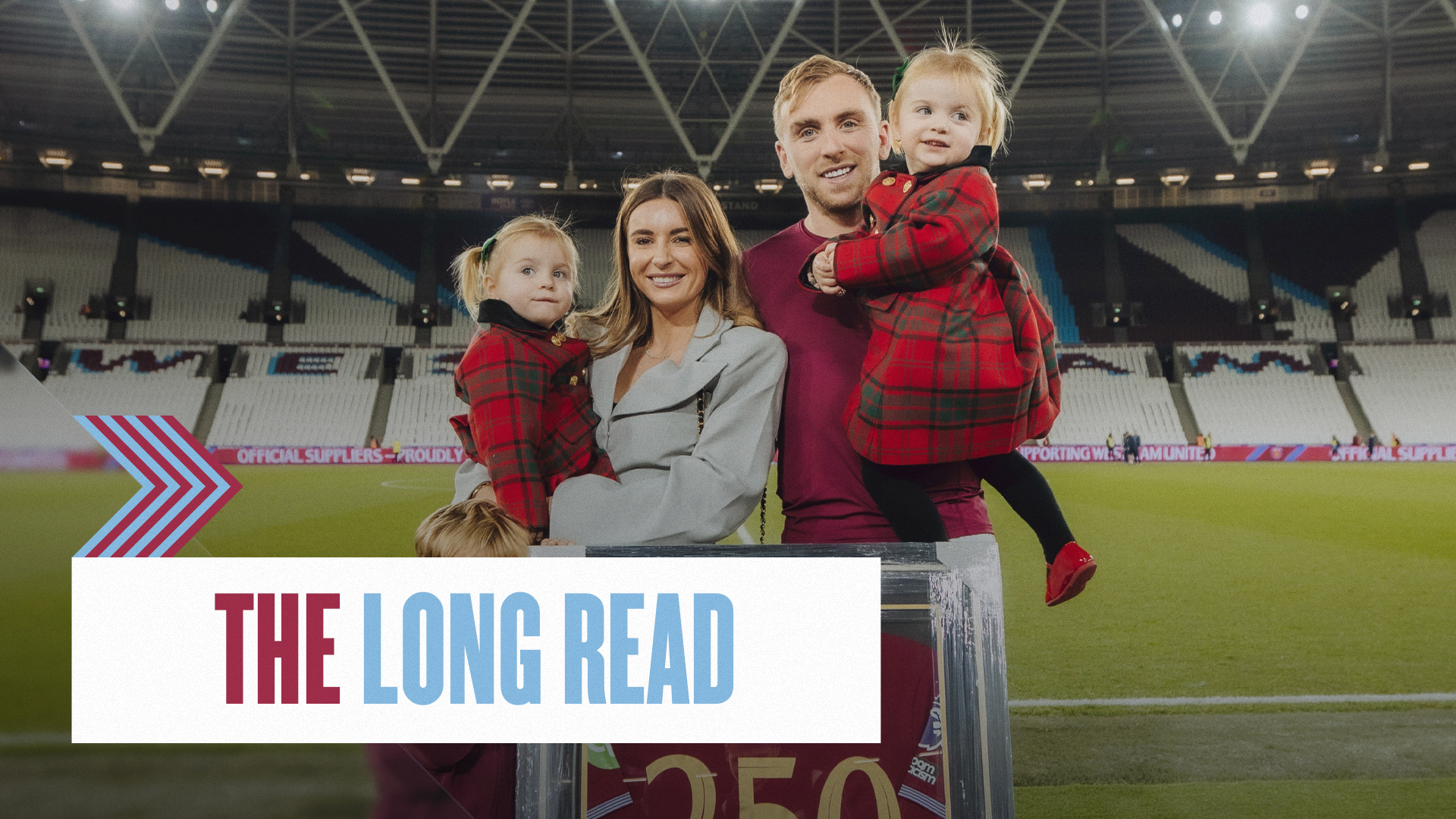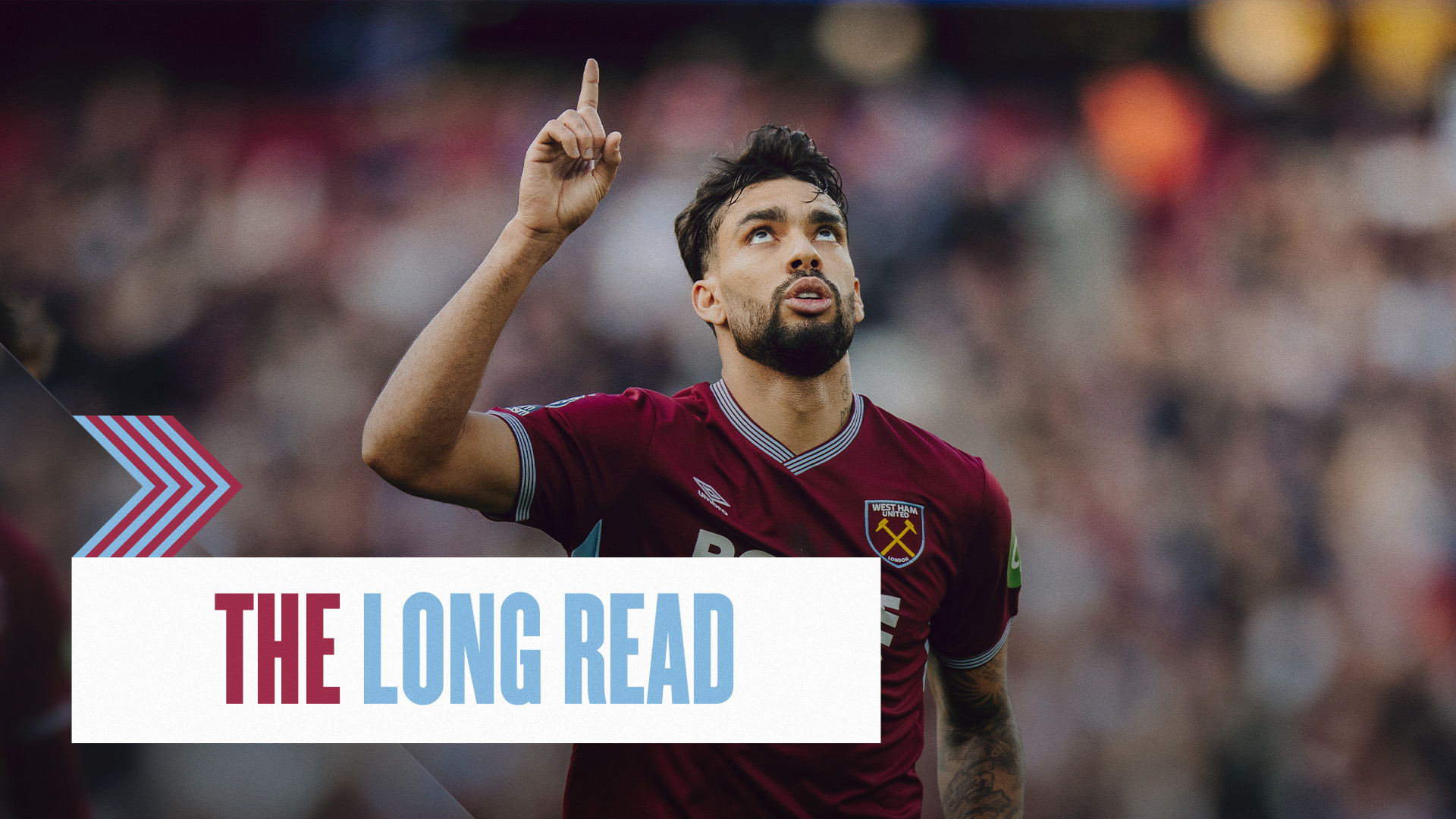December marked 50 years since ALAN TAYLOR made his first-ever start in Claret & Blue. Now, as we continue our series commemorating the half-century anniversary of the Club’s 1975 FA Cup final triumph, the Hammers’ match-winner recalls his rapid rise to fame…
In May 1975, in another life, Alan Taylor could easily have found himself, spanner in hand, hunched over the engine compartment of a broken-down bus.
Instead, the Wembley winner found himself proudly protruding from the sun-roof of West Ham United’s team coach, holding the FA Cup aloft, on a victory parade that slowly meandered its way through the crowded streets of the East End.
From Lancashire to London, it had been an incredible, turbo-charged journey for the former trainee mechanic turned Hammers hero, who had been playing for fourth-tier Rochdale just six months earlier.
“Where did all those supporters come from?” smiles ‘Sparrow’, half-a-century on from grabbing the headlines and etching his name into Cockney folklore with the deadly double that floored Fulham in the final. “And where had I come from?
“As a young schoolboy it’d always been my aim to play football and having started out in Preston North End’s youth team, I’d ended up joining Lancaster City U18s before getting my chance with Morecambe in the Northern Premier League.
“With a few offers coming in for me, I signed for Rochdale,” continues Taylor. “A step-up, I wasn’t sure I’d make it as a footballer so I continued to train as a mechanic just in case I needed to fall back on another career.
“1973/74 hadn’t been the best of first seasons for me at Rochdale, either. I only scored once in 36 matches – a penalty against Southend United. Then, we signed two experienced players in Mike Ferguson, who’d played for Blackburn Rovers and Neil Young, who scored Manchester City’s match-winner in the 1969 FA Cup final.
“Both had the ability to feed me the ball and let me use my pace to run at defenders and I scored six times in our opening 19 matches of 1974/75. By now, football had become my main focus,” he continues, any spanners now being used purely to tighten his screw-in studs. “I also started hearing that a few clubs were watching me, too.”
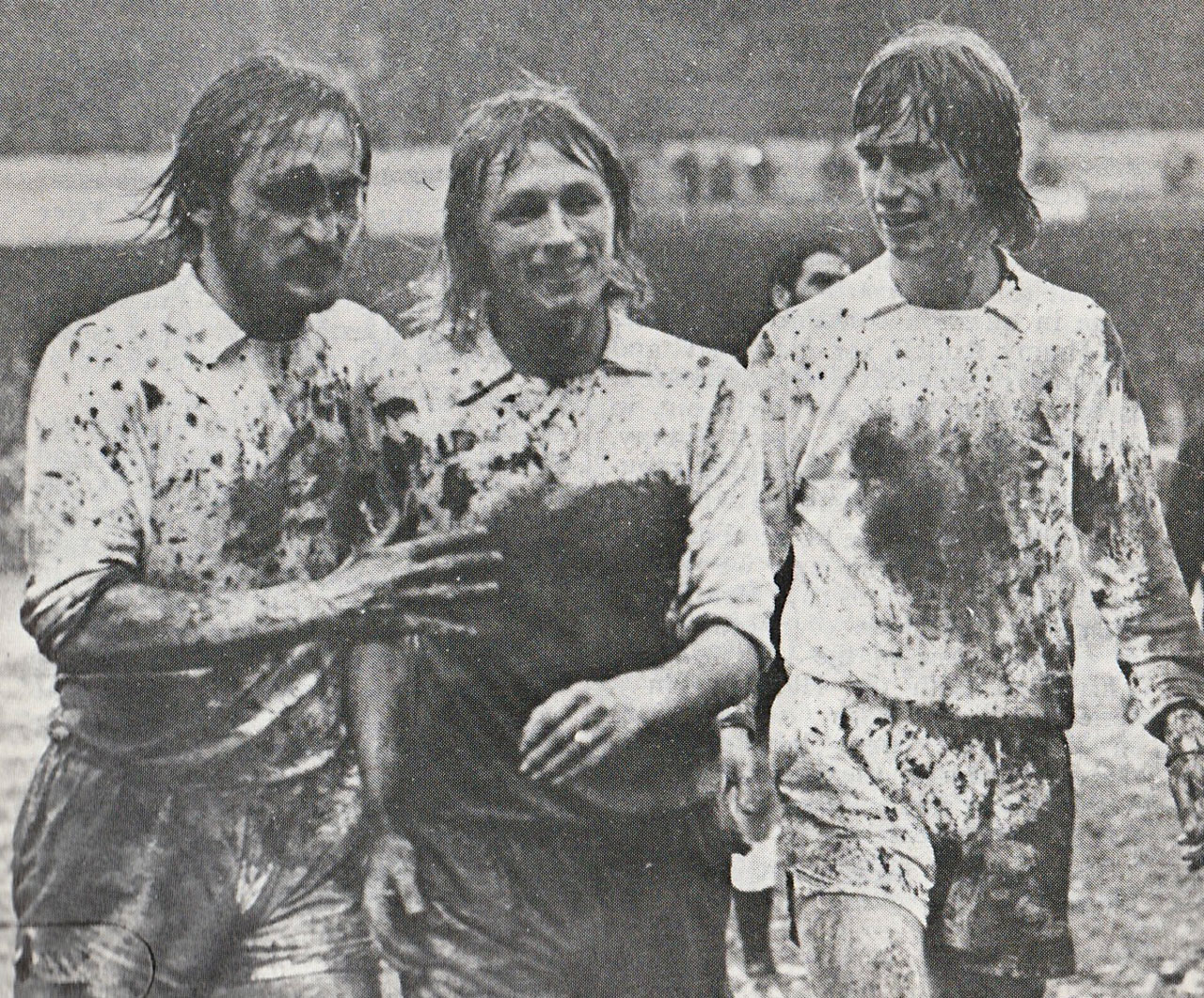
Indeed, West Ham led the chase for the Rochdale rookie but – in one of those quirky twists of fate that seem to go hand-in-hand with the world’s oldest national football competition – the forward-thinking Ron Greenwood insisted that Taylor did not become FA Cup-tied.
“I should’ve been playing for ‘Dale in a goalless, first-round draw against Marine but instead was sitting at Anfield watching Keith Robson score for the Hammers in their 1-1 draw with Liverpool,” confides Alan, who subsequently signed for a bargain-bucket £40,000 just days after his 21st birthday. “Not wanting to jeopardise that fee, Rochdale announced I was either unwell or injured.”
Greenwood’s memorable mantra was always: ‘Simplicity is genius.’
Certainly, by simply demanding that Rochdale’s prize-asset did not play against the non-leaguers, that stroke of Greenwood genius was destined to reap rich dividends for West Ham, while launching Taylor’s life onto a totally different trajectory to that he might have experienced had he played in that dour Spotland stalemate.
Alan had not been the only eager youngster to be plucked from obscurity for Greenwood had also overseen the signing of Robson (aged 20) from Newcastle United, while Billy Jennings (22) was captured from third-tier Watford, too.
“In this day and age, a manager wouldn’t spend his club’s money on three young players like us,” contends Taylor, now 71. “We formed a strong bond and are still very close. Looking back, Ron and John Lyall hoped my pace would cause teams problems if I could link up with Robbo and Billy, while getting onto some of those great Trevor Brooking passes, too. It was marvellous how we all clicked during that period.”
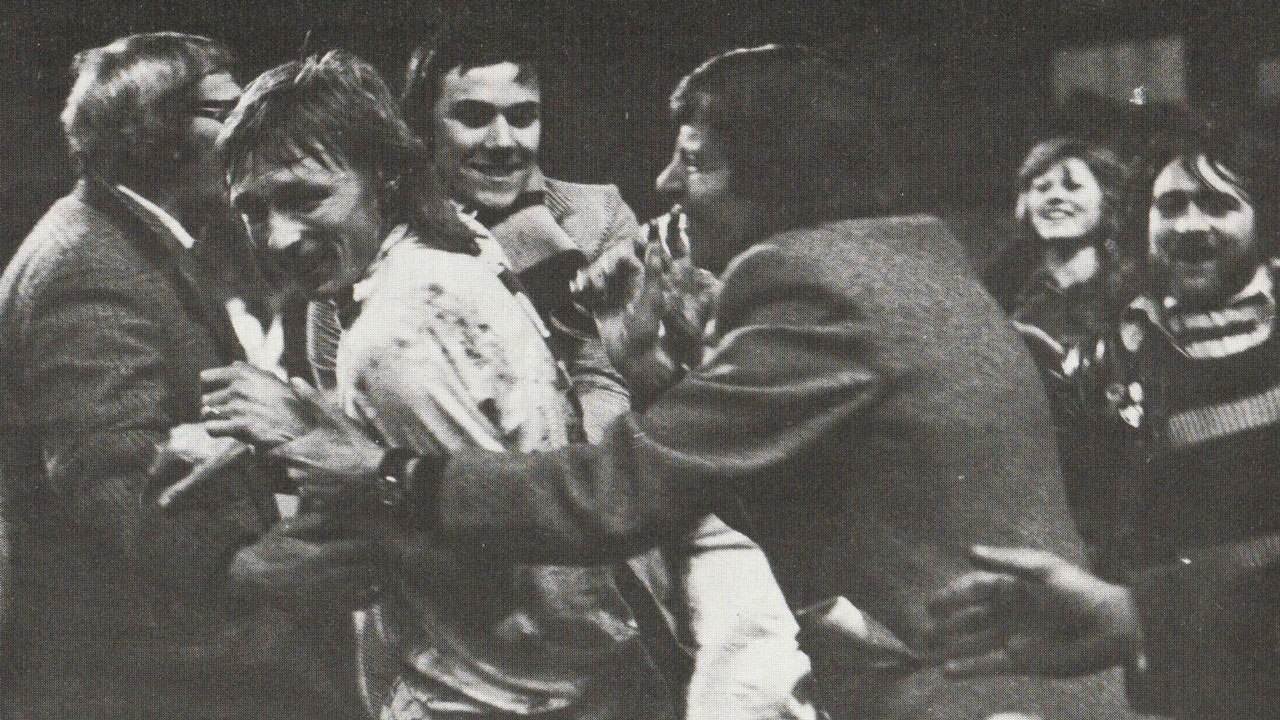
Now tagged ‘Sparrow’ due to his spindly legs and slight build, he was soon pitched in at the deep end, getting a late call from the substitutes’ bench to face reigning champions, Leeds United.
“Their Scottish hard man Billy Bremner was the first player to tackle me in the top division,” he winces recalling his Hammers debut and a 2-1 win that sent West Ham into fifth spot. “I also came on against Tottenham Hotspur (1-1) on Boxing Day before making my first-ever start at Stoke City (1-2) on 28 December 1974. Chasing Alan Hudson, though, I tweaked my medial ligament and was ruled out until the end of February.”
Meanwhile, West Ham had already seen off Southampton (2-1), Swindon Town (2-1 following a 1-1 draw) and Queens Park Rangers (2-1) in the FA Cup and, in early March, the fit-again forward found himself making a tricky trip to Highbury.
“Starting against Arsenal in a quarter-final? Who would’ve thought that?” he gasps, recalling his day of destiny. “I’d found out after Friday’s training session that I was playing and didn’t get too much sleep that night. I kept telling myself: ‘This is the FA Cup sixth-round – play well, run at defenders and if you get a chance, shoot!’
“Substitute Bobby Gould was our most-experienced striker, yet I was taking his place for a game against his old club. We sat together on the coach and he really was a great help to me. It was ‘Gouldie’ who’d given me the nickname that’s stuck to this day. I’ll still bump into Sir Trevor on matchdays and he’ll always smile: ‘Hello Sparrow.’
“West Ham had lost at Arsenal (0-3) in the league just before I’d arrived and we needed to play well and, hopefully, have a bit of FA Cup fortune along the way, too.”
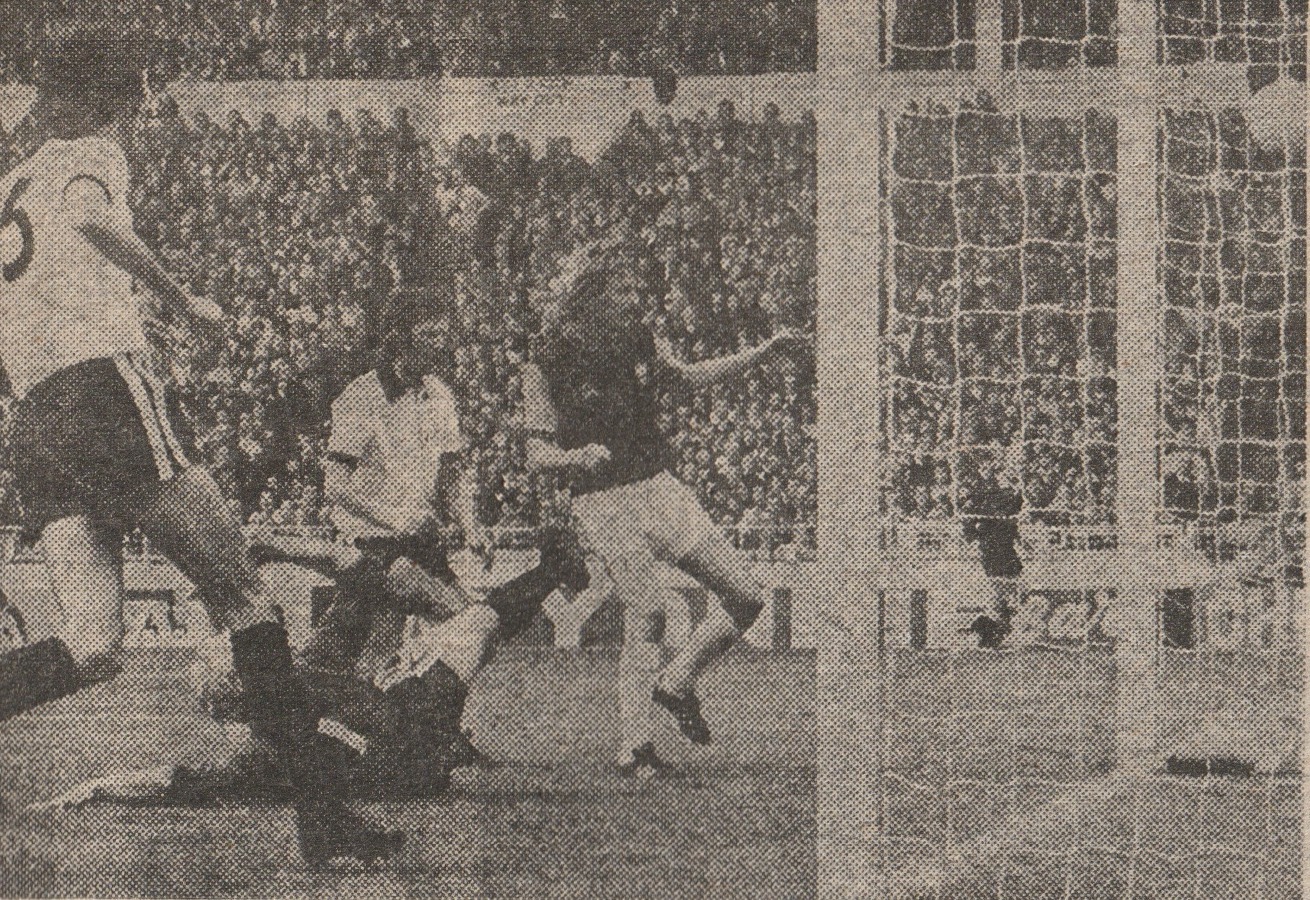
Make no mistake, Alan did indeed play well, taking only a quarter-hour to wade through the north London mud and put the Hammers ahead with the first of the 36 goals he would, ultimately, score during his 124 outings down West Ham way.
FA Cup fortune duly arrived just before the break, too, when ‘keeper Mervyn Day collided with escaping [future Hammers] striker, John Radford, on the edge of the penalty area. With no Video Assistant Referee reviews, match-official Ken Burns took the atrocious conditions into account and simply waved play on as the disgruntled Gunners vociferously appealed for a spot-kick.
Taylor’s day was still not finished – one minute into the second period, Brooking sent him trudging through the quagmire to seal a 2-0 victory with a clinical 15-yarder.
“It was an amazing result,” he nods. “My move to West Ham had been big but scoring twice in my first FA Cup tie for the Club was a massive highlight for me, too. Life began changing from that moment and it was the start of a truly great footballing career for me.
“I’d come from nowhere. Suddenly, I was now in the spotlight being plastered all over the back pages. Afterwards, I went to Norwich to visit my fiancée – now wife – Jeanette, who I’d met on holiday in Spain a couple of years earlier.
“Getting to Norfolk from London was proving far easier than my old journey from Rochdale but on the Sunday morning we were totally surprised to see the press arriving to take our photographs.”
Remarkably, the Lancashire hot-pot then cooked up another double treat to repeat the feat in our semi-final replay against Ipswich Town.
“In the first game at Villa Park (0-0) both sides probably felt they’d too much to lose and the Stamford Bridge replay (2-1) was similar,” he observes. “Thankfully, my two goals counted, while Ipswich had two disallowed for offside in a snow blizzard. It all made for a very good result – in the FA Cup, you have to ride your luck and take your chances.”
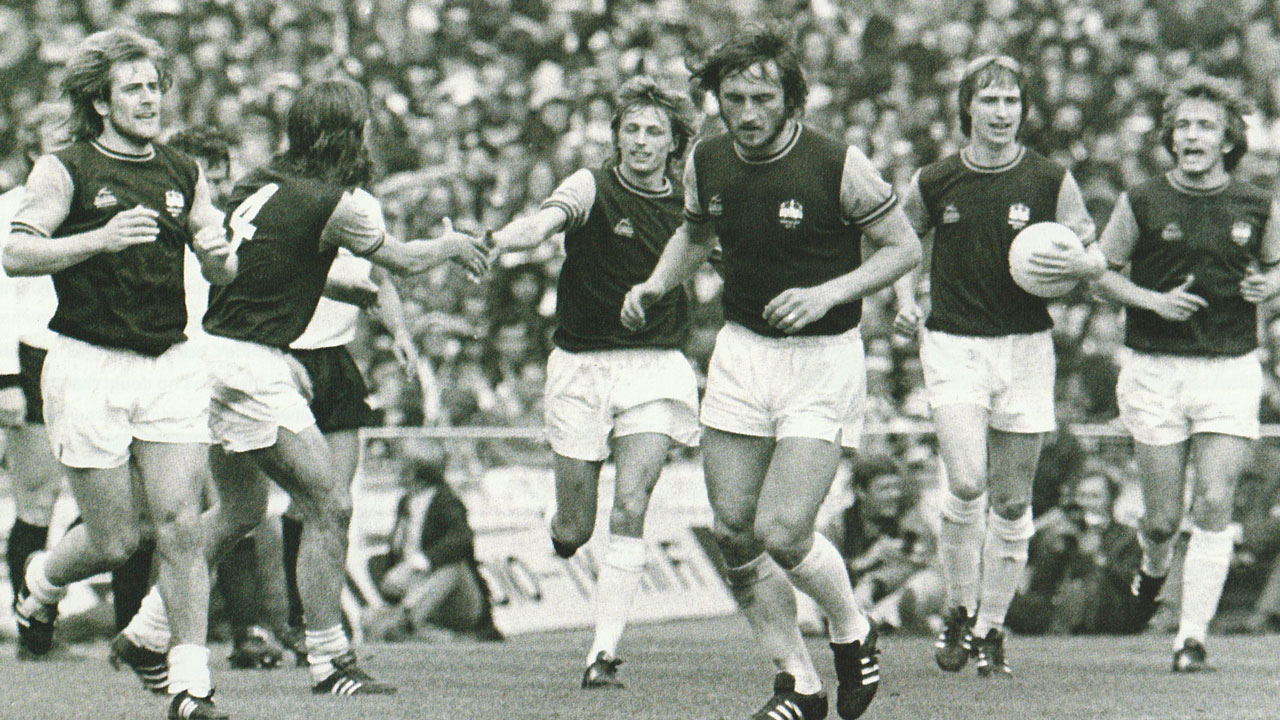
Next up, it was the big one – that Wembley date with Bobby Moore’s Fulham.
“I hadn’t experienced anything like an FA Cup final and neither had any of the other lads,” admits Taylor, who would amazingly bag yet another brace beneath the iconic Twin Towers. “Us youngsters all looked towards Trevor, Billy Bonds, Frank Lampard and Graham Paddon for help in handling the build-up to Wembley.”
Following a goalless first half, on the hour-mark, Fulham ‘keeper Peter Mellor spilled a Jennings shot and, quick as a flash, Taylor pounced on the loose ball to break the London derby deadlock.
Five minutes later, the luckless Mellor failed to hold Paddon’s stinging volley and Sparrow flew in, once more, to secure a 2-0 victory and an FA Cup winner’s medal.
“It’s really sad that Graham, Ron and John are no longer with us because on the day everyone had mucked in together. I was just fortunate to be in those right places at the right times,” says the modest match-winner playing down his Hammers heroics. “On average, the players around me would create four of five opportunities per game so I knew that if they could do that at Wembley there was a chance that a couple might, hopefully, go in.
“Towards the end, I also had a near-post header but just couldn’t get enough on the ball. Afterwards, I was kicking myself because I hadn’t got a hat-trick but you can’t be too greedy, can you? Some players never even make it to an FA Cup final yet alone get to score two match-winning goals.
“I was now on the front pages, too. Those two strikes had got me there and totally raised my profile. After that, I couldn’t go anywhere in the East End without being recognised.
“People still tell me that they were at Wembley on 3 May 1975,” concludes Alan, who currently combines his job working as a funeral director’s pall-bearer in Norfolk with his Club Ambassador role at London Stadium. “An unbelievable afternoon, that’s the day when everything really started for me. I loved every single thing about that FA Cup campaign, all the way from the quarter-final win at Arsenal to the victory parade.
“Those were the days and they’ll live with me forever…”
